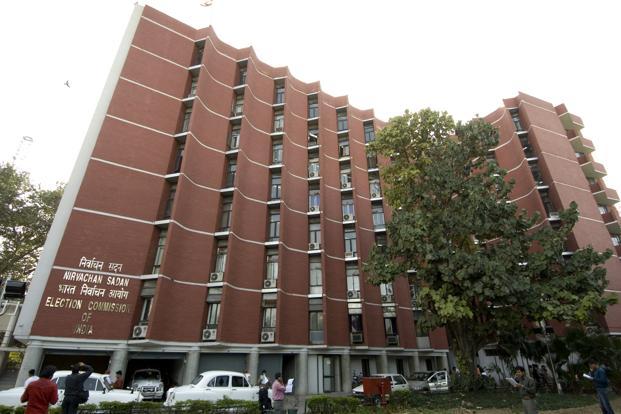ECI urged the govt. to ban anonymous contributions made to political parties
 NEW DELHI :The Election Commission has urged the government to amend laws to ban anonymous contributions of Rs 2000 and above made to political parties.
NEW DELHI :The Election Commission has urged the government to amend laws to ban anonymous contributions of Rs 2000 and above made to political parties.
As per the proposed amendment by the EC, “anonymous contributions above or equal to the amount of Rs two thousand should be prohibited.”
Only yesterday, the government had said that political parties depositing old 500 and 1,000 rupee notes in their accounts would be exempt from income tax provided the donations taken are below Rs 20,000 per individual and properly documented.
Revenue Secretary Hasmukh Adhia had said that the government was not tinkering with the tax exemption available to political parties and they were free to deposit old 500 and 1000 rupee notes in their bank accounts.
But these deposits would, however, be subject to the condition that individual donations taken in cash do not exceed Rs 20,000 and were properly documented with full identity of the donor.
On the other hand, Union Finance Minister Arun Jaitley had said yesterday that political parties could not accept donations in old 500 and 1,000 rupee notes since these bills were junked last month and had clarified that there was no new exemption granted.
He had said that conditional tax exemptions historically given to income of registered political parties continued and no new concession or exemption had been granted either post November 8 demonetisation announcement or in the last two-and-a-half years.
“Post demonetisation, no political party can accept donations in 500 and 1,000 rupee notes since they were rendered illegal tenders. Any party doing so would be in violation of law,” he had said.
Jaitley had added that just like anyone else, political parties could also deposit their cash held in the old currency in banks till December 30 “provided they can satisfactorily explain the source of income and their books of accounts reflect the entries prior to November 8.
If there is any discrepancy in the books or records of political parties, they are as liable to be questioned by the Income Tax authorities as is anyone else. They enjoy no immunity whatsoever. There is no question of sparing anyone, and the political class is no exception.”
The EC has also proposed that exemption of Income Tax should only be extended to political parties that contest elections and win seats in Lok Sabha or Assembly polls.
The commission said, “There could be cases where political parties could be formed merely for availing of provisions of income tax exemption if the facility, that are at the expense of the public exchequer, is provided to all political parties.”
In yet another recommendation to check black money, the EC has asked the Law Ministry to ensure that political parties are made to register details of donors for coupons of all amounts on the basis of a Supreme Court order of 1996.
Coupons are one of the ways devised by the political parties for collecting donations and hence are printed by the party itself. There is no cap or limit as to how many coupons can be printed or its total quantum.
Currently, the details of donors is not required for coupons with small amounts such as for Rs 10 or 20. “These smaller sums aggregate into a bigger amount and hence, they need to be accounted for, to ensure transparency,” the Commission said.
Section 13A of the Income-tax Act, 1961 confers tax exemption to political parties for income from house property, income by way of voluntary contributions, income from capital gains and income from other sources.Only income under the head ‘salaries and income from business or profession’ are chargeable to tax in the hands of political parties in India.
There is no constitutional or statutory prohibition on receipt of anonymous donations by political parties. But there is an “indirect partial ban” on anonymous donations through the requirement of declaration of donations under section 29C of The Representation of the People Act, 1951.But, such declarations are mandated only for contributions above Rs 20,000.(With PTI inputs)

